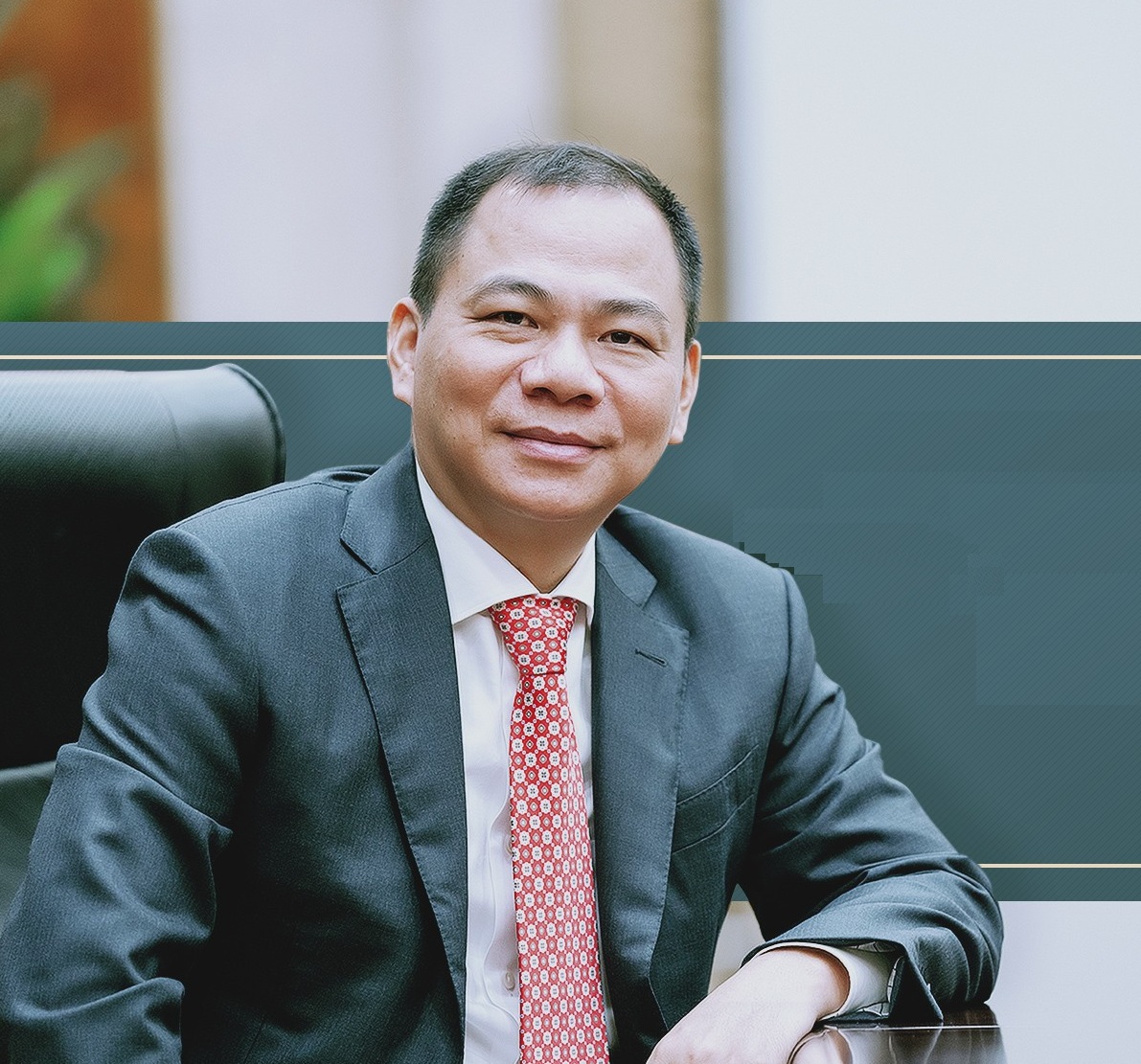Pham Nhat Vuong discussed Vingroup’s ambition in the tech and education sectors, as well as a little about his private life in this second instalment of a three-part interview with Tuoi Tre (Youth) newspaper.
Vuong is Vietnam’s richest man and chairman of multifaceted conglomerate Vingroup, which operates in the fields of realty development, retail, tourism, and auto manufacturing, and smartphone development.
Read the first part of his interview with Tuoi Tre here.
In Vietnam we say “a farmer who sows seeds knows when the harvest season comes.” If Vingroup’s foray into technology and industry are your ‘seeds’ when do you expect your ‘harvest’?
Well, some of our companies have already started producing software and we expect them to roll out the first programs within the next six months. We also have programs in our pipeline that will take much longer. For example, [director of Vingroup’s Big Data Institute, Professor Vu Ha] Van told me that we can expect our first AI products in two years.
Each of our companies has a planning group and we expect them to use their own initiative to provide an outline of what they hope to achieve over a certain period.
One of the companies is trying to write a program for Vinpearl [Vingroup’s hotel and resort brand]. The hotel system now has nearly 60 software programs to manage its operations. Each minor task in the system needs a program. It’s very complicated. We’ve even purchased the world’s-best hotel management software but it still needs to be supplemented with over a dozen other programs.
Right now we have a firm working on a program that will combine the dozens of other programs we use into one. An advantage that Vingroup offers to software enterprises is its ecosystem of services. Suppose a company writes a program for a hotel. The first step is for the company to learn how the hotel works and understand its procedures. But if the hotel belongs to our conglomerate, the company doesn’t need to learn anything. They just need to send teams to the hotel. The software and operation teams can interact every day to sort out the inputs, procedures, and outputs. Things run really smoothly that way. We want to build a piece of hotel management software that works effectively for both Vingroup and other hotel chains across the world. We believe our companies will achieve actual outcomes in a maximum of five years.
Vincom is also making waves in the education sector. Can you tell us more about your VinUni?
This is the undertaking that we’ve planned for a long time. It’s evolved in lockstep with Vingroup’s changes in vision and growth. While we originally intended to build a good university in Vietnam, it’s now become our mission to ensure it meets international standards. We hope to make it among the world’s top 30 to 50 prestigious higher-education institutions 20 to 30 years from now.
 |
| Pham Nhat Vuong. Photo: Nam Long / Tuoi Tre |
Colleges typically have their own particular strong points, for example exellence in fundamental research, technology, medicine, or business study. What strong points do you expect VinUni to possess?
We want to focus on science, technology, medicine, and business administration.
Is it true that VinUni will be non-profit?
That’s right. If we want to build a prestigious university, we need to take a non-profit approach. Our own money will be the sole investment. If we want to build prestige on an international scale, our investment in research should be very large so that the school isn’t disqualified by ranking organizations for not meeting certain criteria.
Where will Vingroup source the capital for this?
To be honest, Vingroup doesn’t have enough money to fund so many large projects. We’ve had to apply for loans and focus on using profits from certain businesses to offset losses in others. The fact that we’re able to take out loans of VND50-70 trillion [$2.15-3.01 billion] speaks to the potential of our projects.
We’ve been talking about big issues. Let’s move on to something more personal. We’ve heard you’re an avid reader. Are there any particular books you can recommend to our readers and what important lessons have they taught you?
It’s true that I read a lot, but my way of reading is very different. I usually take a look at the index to find interesting topics and then only read the corresponding content. Sometimes I read an article two or three times until I’m sure I’ve understood it.
I loved learning history and reading history books when I was young. My father was very proud of me because I knew the Dinh, early-Le, Ly, Tran and later-Le dynasties [Vietnamese dynasties] very well. But when I grew older, my interest shifted. I loved reading fiction novels during my college years but right now my favorite books are related to business administration and technology. I don’t look for technical details in technology books. Instead, I try to find trends and reviews on current technologies.
With your position at the helm of such a large business, how do you find the time to read?
It depends [smiling]. If I get home and am not very tired, I read or just watch TV with my daughter before going to bed. My way of working is like this: once I’ve started doing something, I concentrate on it as intensely as possible. I hold a lot of meetings but they last a very short time, typically just 10 to 15 minutes. The maximum length is half an hour. My workload and intensity wears me out by the end of the day.
Do you think reading can turn someone from a good person to a great person?
[Smiling] Your question is similar to the name of a book [Jim C. Collin’s Good to Great: Why Some Companies Make the Leap… and Others Don’t] that I gave my employees. I’ve included part of its ideas in training sessions because it discusses Vingroup cultural features: disciplined spirit and disciplined thought. It says clearly that success requires disciplined action and thought. The Vingroup culture is built with three values: patriotism, discipline, and civility. These three words are enough.
Chinese billionaire Jack Ma recently visited Vietnam. The admiration many young Vietnamese people have for him made us wonder why they don’t seem to show a similar admiration for you.
I’m only a person who likes to do. I’m a man of few words, even in my corporate meetings. I’m not talkative. I also don’t like making public appearances. I let my work speak for itself.
There’s an urban legend that you’ve used the same belt for 29 years. Is it true?
Oh no it isn’t. I think it couldn’t last me 29 years because it’s too old [smile]. But it may be true that I used it for around ten years [Vuong looked down to his belt while saying this.] Its brand name is blurred now. I have the habit of wearing simple clothes since my youth.
Like us on Facebook or follow us on Twitter to get the latest news about Vietnam!



















































